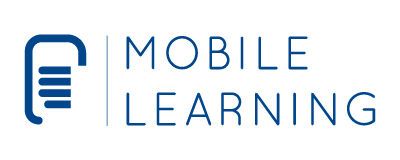Clinical Facilitation: Essential Skills and Principles
Overview
Are you a healthcare professional looking to enhance your clinical facilitation abilities?
Developed by the Council of Deans of Nursing and Midwifery (Australia and New Zealand), and hosted by The University of Melbourne, Mobile Learning Unit, the "Clinical Facilitation: Essential Skills and Principles" short course is tailored to empower healthcare professionals seeking to elevate their clinical facilitation skills. Whether you're an experienced clinical facilitator or embarking on your educational journey, this course is designed to equip you with the tools needed to excel in this critical role.
Clinical facilitation is a dynamic and pivotal aspect of preregistration nursing and midwifery student education. It requires a unique blend of clinical expertise, effective communication, and andragogy proficiency. In this concise yet comprehensive online course, we will guide you through the fundamental skills and principles that underpin successful clinical facilitation.
Course Information
$ Fees
Course Fee: AUD $363 (incl. GST)
Discounted Group Rates: Discounted group rates are available for groups of 20 or more students. For enquiries, please reach out to us at mobile-learning@unimelb.edu.au
Location
Online
Designed For
This course is ideal for anyone who is involved in teaching or mentoring preregistration nursing and midwifery students within the clinical environment and includes healthcare professionals, clinical facilitators, clinical educators, and preceptors. Whether you work in a hospital, clinic, or academic setting, these fundamental skills and principles are universally applicable. They will empower you to provide high-quality quality, effective clinical facilitation to students.
Learning Outcomes
By the end of this course, learners will be able to:
- Understand the dimensions of regulatory requirements and key stakeholders for the nursing and midwifery profession and how they apply to clinical facilitation.
- Identify the roles and responsibilities of a clinical facilitator and consider how certain behaviours can impact a student's PEP experience.
- Recognise the influence of various adult learning principles for clinical facilitation and identify a range of teaching methods to support students during PEP
- Explore a range of skills that clinical facilitators can utilise during PEP to effectively facilitate students.
- Outline the components of assessment of student learning during PEP including strategies to support underperforming students.
- Identify the practical strategies to provide timely, effective and individualised feedback to enhance student learning.
- Understand the importance of the Clinical Reasoning Cycle in relation to reflective practice, critical thinking and professional development.
- Understand the social, psychosocial, economic, physical and cognitive factors that influence student and clinical facilitator wellbeing
Course Units
This course requires approximately 10 hours of study and assessment.
The course contains the following modules:
- Key Stakeholders in Work Integrated Learning: Nursing and Midwifery
- Effective Clinical Facilitation of Students
- Evidence-Based Practice for Effective Clinical Facilitation
- Setting Clinical Facilitators up for Success
- Authentic Assessment of Learning
- Providing Effective Feedback for Learning
- Promoting Reflective Practice for Learning
- Promoting Student and Clinical Facilitator Wellbeing
Assessment
Delivery Mode
Learners are engaged through videos, case studies and self-assessment activities which support and reinforce learning. Learners are required to complete a quiz within each module to complete the course successfully.
Our online short course requires approximately 10 hours of eLearning. It is self-paced, allowing you to study at your convenience. Engage in interactive modules, real-world case studies, reflective exercises and self-assessment to make the most of the course content.
Course Leaders
List of Services
-
Lucy RosenbergList Item 1
Manager Clinical Liaison, University of Technology Sydney
BN, BSc, Grad. Cert. International Public Health, MNg(GlobHlth)
Lucy is the Manager, Clinical Liaison for UTS and she has an extensive background working with clinical facilitators and pre-registration students throughout their Professional Experience Placements for UTS. Lucy is passionate about optimising the student experience through consistent and standardised approaches to clinical facilitation.
-
Dr Leanne HuntList Item 2
Senior Lecturer, Deputy Director Academic Program-Clinical.
RN, Grad Dip Health. Sc. (HIV studies), Grad. Cert. ICU Nursing (Adult), Grad. Cert. ICU Nursing (Neonatal), MHM, PhD.
Dr Leanne Hunt holds the position of Senior Lecturer and Deputy Director Academic Program, Clinical within the School of Nursing and Midwifery at Western Sydney University. Leanne has a comprehensive history of supporting clinical facilitators and pre-registration student during PEP. Leanne actively provides support during PEP to foster the growth of individuals within the nursing and midwifery profession.
Contact Us
Connect with us


